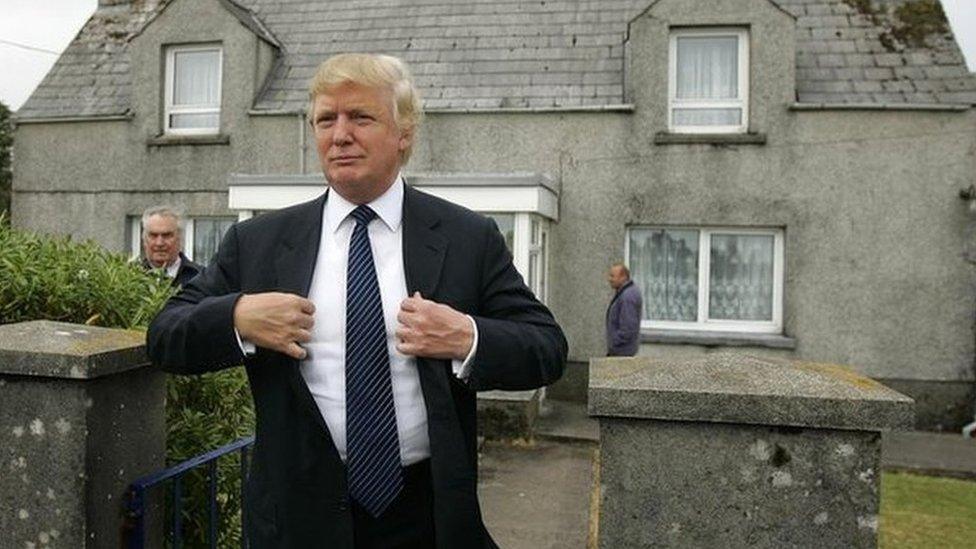Donald Trump state visit to UK being considered
- Published
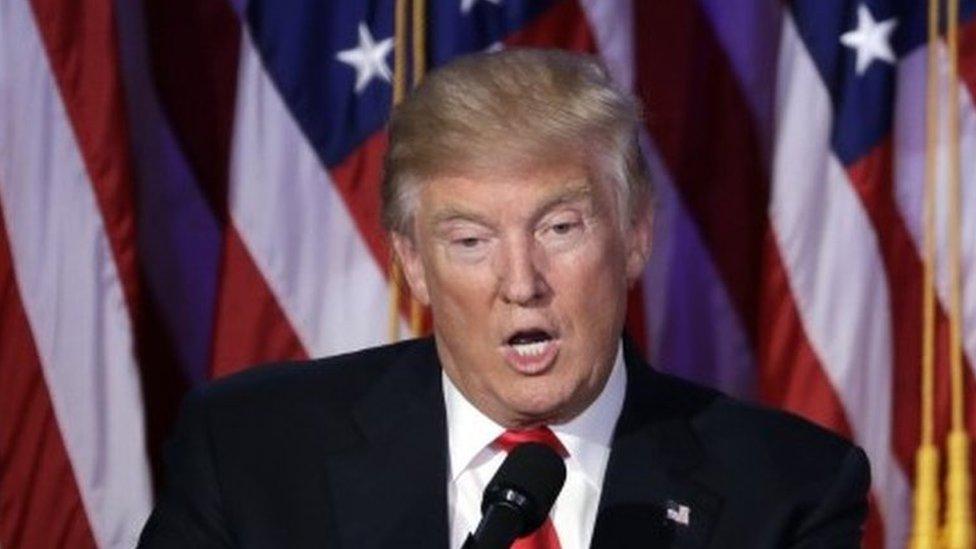
The UK government is considering inviting US President-elect Donald Trump for a state visit, Downing Street has said.
The Republican, who beat Democratic rival Hillary Clinton in the election earlier this month, is due to take office on 20 January.
Earlier this year, MPs debated the idea of banning Mr Trump from the UK.
But the government has stressed the importance of maintaining the "special relationship" between the countries.
Prime Minister Theresa May's official spokeswoman said: "An invitation for a state visit is one of the things that is under consideration following the election of a new US president. One of the issues under consideration is the 2017 state visits."
State visits are formal trips to the UK by foreign heads of state from overseas. There are normally two a year and invitations are sent on the advice of the Foreign Office.

Recent state visits to UK
November 2016 - President Juan Manuel Santos of Colombia
October 2015 - President Xi Jinping of China
March 2015 - President Enrique Pena Nieto of Mexico
October 2014 - President Tony Tan Keng Yam of Singapore
April 2014 - President Michael D. Higgins of Ireland
November 2013 - President Park Geun-hye of South Korea

The Queen acts as host, with the visitor usually staying either at Buckingham Palace or Windsor Castle.
Visits normally begin with a ceremonial welcome attended by The Queen and other senior members of the Royal Family, while a State Banquet is held in his or her honour.
Mr Trump's predecessor, Barack Obama, made a state visit to the UK in 2011.
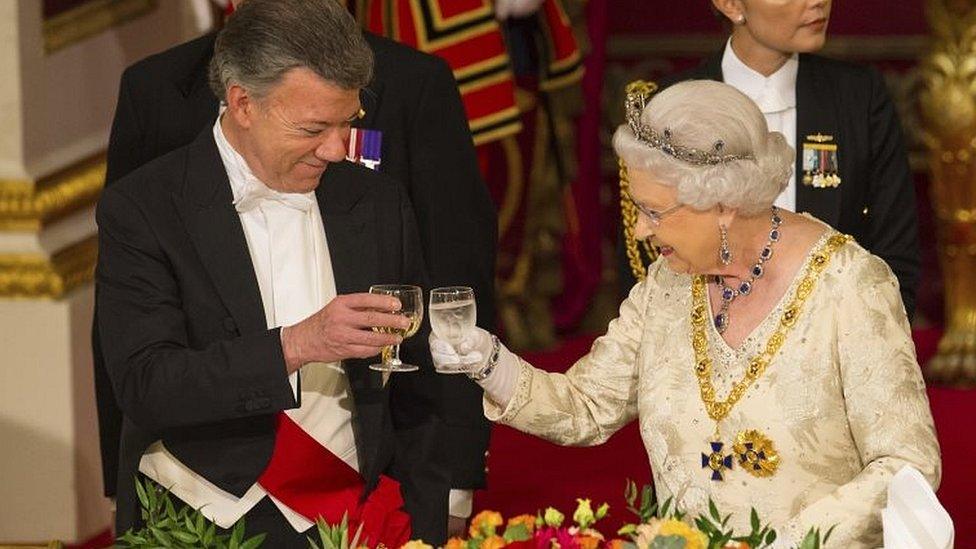
Colombia's president Juan Manual Santos at a state banquet at Buckingham Palace this month
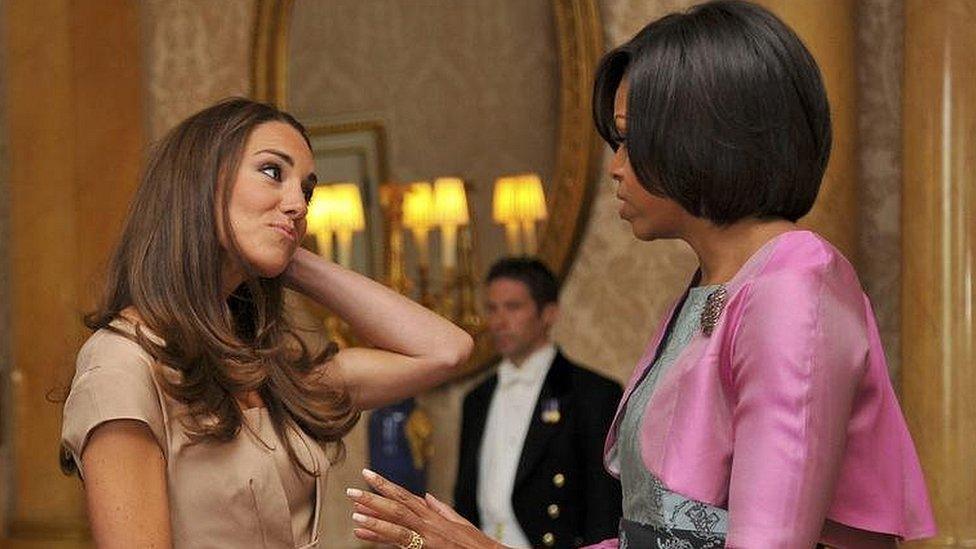
First Lady Michelle Obama with the Duchess of Cambridge, at Buckingham Palace in London, on the first day of President Obama"s three-day state visit to the UK in 2011
In January, MPs debated whether Mr Trump should be banned from visiting the UK, after 574,000 people signed a petition. This followed his remarks calling for a temporary ban on Muslims entering the US.
It was argued that his presence would risk "inflaming tensions between vulnerable communities". But opponents of a ban said it would give Mr Trump "the role of martyrdom" and could mean "shutting down an honest debate" on immigration.
News of the possible state visit came as Mr Obama - who had his farewell trip to Europe last week - said he would speak out about Mr Trump's presidency if he feels an issue "goes to core questions about our values and our ideals".
US presidents tend to avoid criticising predecessors or successors. Mr Obama - who has previously been heavily criticised by Mr Trump and who had questioned his successor's suitability for high office - was clear that he would not weigh in on Mr Trump's decisions while he was still in power.
Meanwhile, as the president-elect continues to select his leadership team, he has confirmed he is considering retired Marine Corps Gen James Mattis for the role of defence secretary, calling him "very impressive" in a tweet.
He also met former critic Mitt Romney, who is now being considered for secretary of state.
Congressman Mike Pompeo has been nominated as CIA director and retired Lt Gen Michael Flynn made national security adviser.
- Published10 November 2016
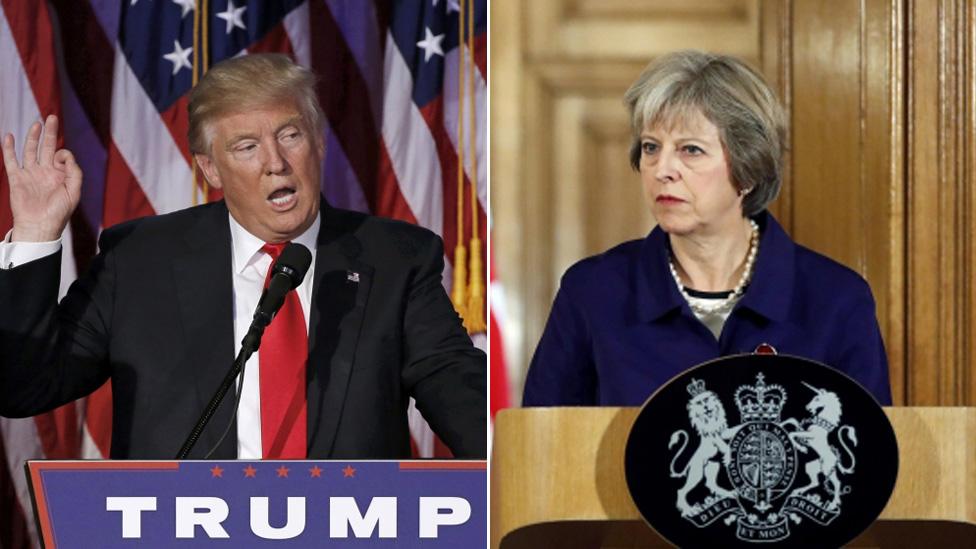
- Published9 November 2016
